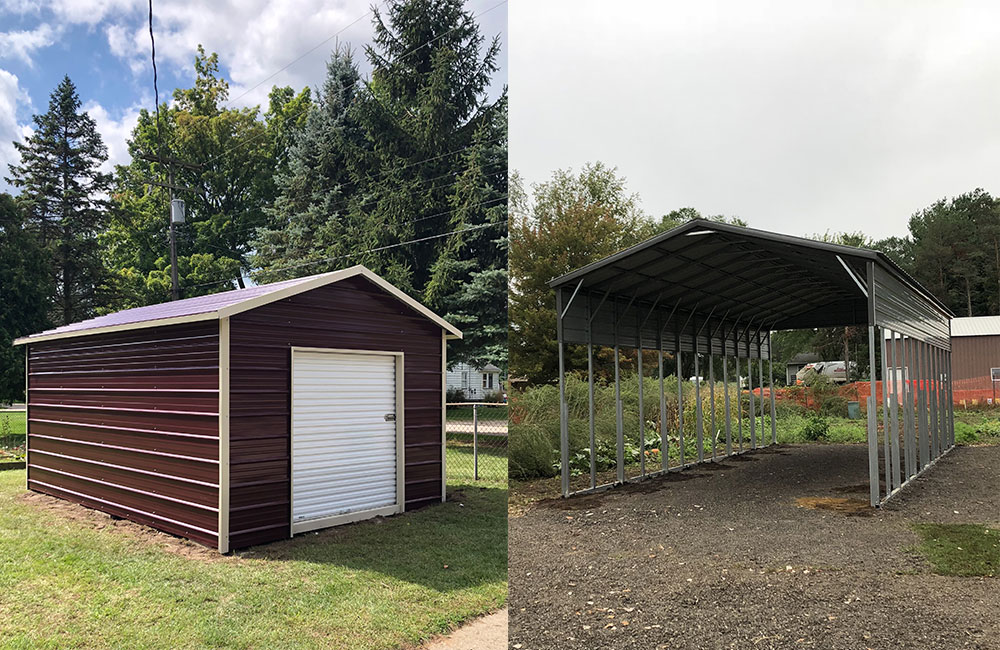
When it comes to protecting your vehicle from the elements and providing additional storage space, you may have come across the options of a garage and a carport. While both structures serve similar purposes, they have distinct differences that make each suitable for specific needs.
Structure and Design
A garage is an enclosed structure with walls and a roof, typically constructed with various materials such as concrete, wood, or metal. It provides full protection for your vehicle and can be attached to or detached from your house. A garage usually includes a secure door and may have windows for ventilation and natural light.
On the other hand, a carport is a partially covered structure that consists of a roof supported by pillars or posts. Unlike a garage, a carport does not have walls and is open on at least two sides. It provides overhead shelter for your vehicle, protecting it from rain, sun, and snow, but offers limited security and privacy.
Protection
Garages offer comprehensive protection for your vehicle as they shield it from the elements, including rain, snow, hail, UV rays, and extreme temperatures. The enclosed structure provides a higher level of security against theft, vandalism, and environmental damage. Moreover, garages offer additional storage space for tools, equipment, and other belongings.
Carports, while offering overhead shelter, leave the sides open, allowing for ventilation and easy access. While they protect your vehicle from direct sunlight, rain, and light snowfall, they are less effective in extreme weather conditions. Carports are best suited for areas with milder climates or as a temporary solution for protecting vehicles.
Cost and Installation
In general, carports are more cost-effective than garages. The open design and simpler construction make carports less expensive to build or purchase. Additionally, they often require fewer building permits and have less stringent construction regulations.
Garages, being fully enclosed structures, tend to be more expensive due to the added materials and labor required for construction. They may also involve additional costs for doors, windows, insulation, and electrical installations.
Versatility and Flexibility
Carports offer greater flexibility in terms of mobility and adaptability. They can be easily relocated or dismantled if needed, making them suitable for renters or individuals who frequently move. Carports can also serve multiple purposes, such as providing shade for outdoor gatherings or acting as a covered workspace.
Garages, on the other hand, are more permanent structures and are typically built to stay in one location. They provide a dedicated space for parking and storage, making them ideal for homeowners who require a secure and long-term solution.
Conclusion
While both garages and carports offer vehicle protection and storage space, they differ in terms of structure, protection level, cost, and flexibility. Consider your specific needs, budget, climate, and future plans before making a decision. Whether you choose a garage or a carport, both options provide valuable benefits to keep your vehicle safe and protected.